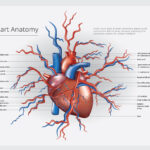A healthy diet is essential for maintaining overall health and well-being. Eating a balanced diet provides the body with the necessary nutrients, vitamins, and minerals to function properly. A well-planned diet can help prevent chronic diseases, increase energy levels, and improve mental health. In this article, we will discuss the importance of a healthy diet and provide tips for incorporating healthy habits into your lifestyle.
Why is a Healthy Diet Important?
A healthy diet is crucial for maintaining overall health and well-being. A well-balanced diet provides the body with the necessary nutrients, vitamins, and minerals to function properly. A healthy diet can help prevent chronic diseases such as heart disease, diabetes, and certain types of cancer. It can also improve mental health, increase energy levels, and boost the immune system.
A healthy diet can also help maintain a healthy weight. Being overweight or obese increases the risk of developing chronic diseases such as heart disease, stroke, and diabetes. Eating a healthy diet can help you maintain a healthy weight by providing the body with the necessary nutrients and vitamins to function properly.
Tips for a Healthy Diet
Incorporating healthy habits into your lifestyle can be challenging, but it is worth the effort. Here are some tips to help you get started:
1. Focus on Whole Foods
Whole foods are nutrient-dense and provide the body with the necessary vitamins, minerals, and fiber to function properly. Focus on consuming whole foods such as fruits, vegetables, whole grains, lean proteins, and healthy fats. Avoid processed foods that are high in sugar, salt, and unhealthy fats.
2. Limit Sugar Intake
Sugar is a common ingredient in many processed foods, but it is not good for your health. Consuming high amounts of sugar can lead to weight gain, inflammation, and an increased risk of chronic diseases. Limit your sugar intake by avoiding processed foods and drinks that are high in sugar.
3. Stay Hydrated
Drinking enough water is essential for maintaining overall health. Water helps to flush out toxins, regulate body temperature, and aid in digestion. Aim to drink at least eight glasses of water a day.
4. Watch Your Portion Sizes
Eating large portions can lead to consuming more calories than you need, which can lead to weight gain. Pay attention to serving sizes and control your portions to maintain a healthy weight.
5. Eat Regularly
Eating regularly can help maintain energy levels and prevent overeating. Aim to eat three main meals and one or two snacks in between.
6. Incorporate Healthy Fats
Healthy fats are essential for maintaining overall health. They provide the body with the necessary fatty acids to function properly. Incorporate healthy fats such as avocado, nuts, seeds, and olive oil into your diet.
7. Limit Alcohol Intake
Drinking too much alcohol can have negative effects on your health. Limit your alcohol intake to moderate levels (one drink a day for women and two drinks a day for men).
8. Eat a Rainbow
Eating a rainbow of fruits and vegetables can provide the body with a range of essential vitamins and minerals. Aim to eat a variety of colors to ensure you are getting all the necessary nutrients.
9. Avoid Fad Diets
Fad diets are not sustainable and can have negative effects on your health. Instead, focus on incorporating healthy habits into your lifestyle. Fad diets can cause nutritional deficiencies and lead to a host of additional health problems, including negatively impacting hormonal health and metabolism
10. Seek Professional Help
If you have a medical condition or are struggling to maintain a healthy diet, seek professional help from a registered dietitian or nutritionist. They can provide personalized advice and help you develop a healthy eating plan that suits your needs.
A healthy diet is essential for maintaining overall health and well-being. Incorporating healthy habits into your lifestyle can be challenging, but it is worth the effort.
SO, You have to focus on whole foods, limit sugar intake, stay hydrated, watch your portion sizes, eat regularly, incorporate healthy fats, limit alcohol intake, eat a rainbow, avoid fad diets, and seek professional help if needed. By following these tips, you can maintain a healthy diet and improve your overall health and well-being.
Healthy Fats That Can Be Incorporated Into A Diet
here are some examples of healthy fats that can be incorporated into a diet:
1- Nuts and seeds: Almonds, walnuts, chia seeds, flaxseeds, and hemp seeds are all great sources of healthy fats.
2- Avocados: Avocados are a rich source of monounsaturated fats, which can help lower cholesterol levels and improve heart health.
3- Olive oil: Olive oil is a healthy source of fat that is rich in monounsaturated fats and antioxidants. Use it as a finishing oil for dishes or as a base for salad dressings.
4-Fatty fish: Fatty fish like salmon, tuna, and mackerel are high in omega-3 fatty acids, which can help reduce inflammation and improve heart health.
5- Coconut oil: Coconut oil is a saturated fat that has been shown to have numerous health benefits, including improving digestion and boosting the immune system.
6-Full-fat dairy: Full-fat dairy products like milk, cheese, and yogurt contain healthy fats and can be a part of a healthy diet.
Egg yolks: Egg yolks are a good source of healthy fats and can be added to omelets, salads, and sauces.
7-Grass-fed butter: Grass-fed butter is a healthier alternative to regular butter and contains healthy fats like conjugated linoleic acid (CLA), which has been shown to have numerous health benefits.
8-Ghee: Ghee is a type of clarified butter that is high in healthy fats and can be used in place of regular butter or oil for cooking.
9-Dark chocolate: Dark chocolate contains healthy fats and antioxidants and can be enjoyed in moderation as a treat.
Remember to always choose whole food sources of healthy fats rather than processed or packaged foods that may contain unhealthy fats. Also, it’s essential to maintain a balance and not consume too many fats, as they are high in calories






















Pingback: Hypertension 101: Everything You Need to Know About High Blood Pressure - POST BLOGS